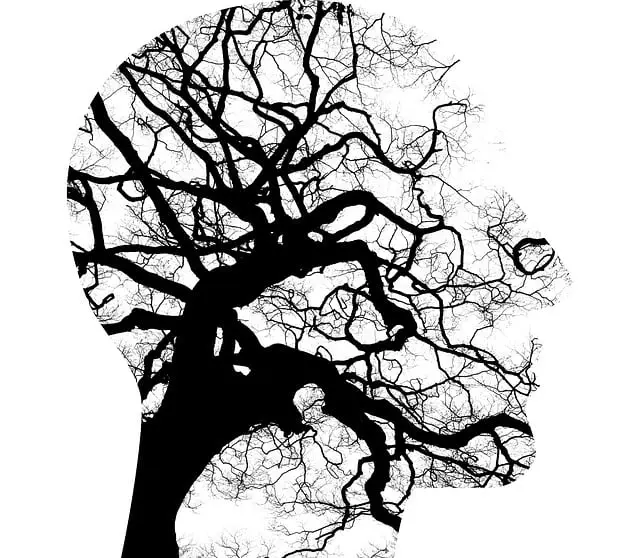The Kaiser Permanente behavioral health center in Arvada leads the charge in community mental wellness initiatives, utilizing digital tools like mental wellness apps. These apps offer personalized support through conflict resolution, mindfulness, and cognitive behavioral therapy, empowering users to manage their psychological health. Engaging features like gamification and tailored modules for diverse therapeutic modalities enhance user experience and encourage consistent app use. Integrating Evidence-Based Practices (EBPs) ensures the app's effectiveness, as demonstrated by its collaboration with Kaiser Permanente, making it a powerful tool for self-care and improved mental wellness outcomes.
Mental wellness apps have emerged as powerful tools in addressing community health initiatives. With a growing emphasis on digital mental healthcare, these applications offer accessible and discrete support for users’ emotional well-being. This article explores the development of an innovative mental wellness app, featuring insights from collaborating with the Kaiser Permanente Behavioral Health Center in Arvada. By integrating evidence-based practices, we delve into how such apps can enhance therapeutic outcomes and engage users effectively.
- Understanding the Need for Mental Wellness Apps: A Focus on Community Health Initiatives
- Designing Effective Features for User Engagement and Therapeutic Outcomes
- Integrating Evidence-Based Practices: Collaborating with Kaiser Permanente Behavioral Health Center, Arvada
Understanding the Need for Mental Wellness Apps: A Focus on Community Health Initiatives

In today’s fast-paced world, mental wellness is a paramount concern, driving initiatives focused on community health across various sectors. Organizations like Kaiser Permanente behavioral health center in Arvada are at the forefront of this movement, recognizing the profound impact of digital tools on individual well-being. Mental wellness apps emerge as an innovative solution, leveraging technology to bring accessible and personalized support to users’ fingertips.
These apps cater to a wide range of needs, from teaching Conflict Resolution Techniques and Compassion Cultivation Practices to reinforcing Mind Over Matter Principles. By offering mindfulness exercises, cognitive behavioral therapy tools, and supportive communities, these digital platforms foster mental resilience and empower individuals to take control of their psychological health. This shift towards community-driven mental wellness initiatives, facilitated by technology, holds significant promise for enhancing the overall well-being of individuals and communities alike.
Designing Effective Features for User Engagement and Therapeutic Outcomes

Designing engaging features for mental wellness apps is a strategic process aimed at fostering user interaction while promoting therapeutic outcomes. Incorporating interactive elements that resonate with users can significantly enhance their experience and encourage consistent use. For instance, integrating gamification techniques such as rewards systems or progress tracking can motivate individuals to engage in activities beneficial for their mental health.
At the Kaiser Permanente behavioral health center in Arvada, developers often focus on creating features that support various therapeutic modalities. This could include modules dedicated to Social Skills Training, Confidence Boosting exercises, and Trauma Support Services, all delivered through an intuitive user interface. By tailoring these elements to meet the diverse needs of users, the app becomes a powerful tool for self-care, empowering individuals to actively participate in their journey towards improved mental wellness.
Integrating Evidence-Based Practices: Collaborating with Kaiser Permanente Behavioral Health Center, Arvada

The development of a mental wellness app is significantly enhanced when Evidence-Based Practices (EBPs) are integrated into its core design. One notable partner in this endeavor is the Kaiser Permanente Behavioral Health Center in Arvada, renowned for its expertise and commitment to evidence-backed therapeutic approaches. By collaborating with this healthcare leader, app developers gain access to a wealth of knowledge in areas such as Cognitive Behavioral Therapy (CBT), Mindfulness, and Acceptance Commitment Therapy (ACT) – all proven strategies for improving mental health outcomes.
This partnership ensures that the app offers users effective tools for building resilience, cultivating empathy within themselves and towards others, and developing their inner strength. Incorporating EBPs not only enhances the app’s credibility but also significantly increases its potential to positively impact users’ well-being in meaningful ways, aligning with the evidence-driven approach of Kaiser Permanente Behavioral Health Center, Arvada.
Mental wellness apps have become essential tools in addressing community health, as evidenced by collaborations with centers like the Kaiser Permanente Behavioral Health Center in Arvada. By integrating evidence-based practices and focusing on user engagement, these applications can significantly enhance therapeutic outcomes. Moving forward, continued development and research will be crucial to meet the diverse needs of users worldwide, ensuring mental wellness support is accessible and effective for all.






